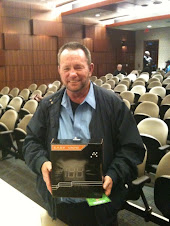One day after an investigation that resulted in 15 arrests, the closure of two medical marijuana dispensaries and the seizure of approximately $750,000 worth of marijuana products, Oakland County Sheriff Michael Bouchard spoke about what he sees as a growing problem.
“This is Michigan. This is not a Cheech and Chong movie,” Bouchard said during a Thursday afternoon press conference.
Ferndale’s Clinical Relief medical marijuana dispensary, 362 Hilton, was among the establishments that were raided Wednesday by undercover officers with Oakland County’s Narcotics Enforcement Team.
Police action may not have come as a surprise to employees there. Bouchard said the Sheriff’s Office recently warned those at the facility that police believed they were participating in illegal activity.
Undercover officers allegedly bought marijuana at the facility without a medical marijuana card, which is required for a legal purchase of the drug. Marijuana also was being sold in the parking lot, and undercover officers witnessed hand-to-hand drug deals, Bouchard said.
Other drugs were also confiscated, and the owner had solicited others to buy high-end marijuana to sell in the establishment, he said.
“There were many commonalties with what we regularly see in drug houses,” Bouchard said. “One place had live alligators walking around protecting the product.”
The evidence was on display for the media, ranging from jars of a wide variety of marijuana strains and marijuana plants to candy, cookies, sugar and lollipops, along with several guns.
Everybody’s Cafe, in Waterford Township, was raided under similar circumstances Wednesday, after officers said they purchased marijuana without proper credentials there. Police also raided multiple residences, though the locations of those homes were not released.
Many arrest details are not yet available because no suspects have been arraigned. Arraignment could be as soon as today, Bouchard said.
“( Marijuana is ) illegal to use except in certain, limited circumstances,” Oakland County Prosecutor Jessica Cooper said during the press conference. “In Michigan, it is very limited.”
Limits include a cap on plants per patient ( 12 ) and patients per caregiver ( five ). Patients are not able to purchase the drug legally from anyone other than their designated caregiver, and marijuana plants must be maintained in an enclosed, locked facility.
“No dispensaries are authorized,” Cooper said. “No co-ops are authorized.”
She said the state’s medical marijuana act is quite different from that of other states, like California.
“Most of the population does not understand that,” Cooper said. “Medical marijuana is an exception ( that has been ) carved out for people who have a debilitating disease.”
Both Bouchard and Cooper agreed that the statute needs clarification. They suggested changes that might make the law clearer.
“New Jersey has one state-run dispensary,” Cooper said. “That would eliminate the need for caregivers and eliminate the need for growers.”
Bouchard said a tamper-proof medical marijuana card with a photo ID should be required. A photo is not required on the current cards.
“There’s no way an officer or a deputy can verify that it’s a valid card,” Bouchard said.
Law enforcement officials don’t want to deal with the issue, Bouchard said, noting that enforcement can be costly and require many resources.
“We don’t want to deal with this at all if it’s within the scope of the law,” Bouchard said. “It’s going to divert a lot of precious resources from things we could and should be doing. This is not something we should be spending a lot of time and money on.”
Bouchard said in his opinion, voters decided that people who were suffering deserved to have their pain lessened when the measure passed in November 2008.
“This has gone far ( away ) from that,” he said. Patients have received medical marijuana cards for things such as stomachaches and shoulder pain, Bouchard said, while others have taken the opportunity to “take an illegal operation and give it the air of legality.”
An investigation is ongoing and more arrests could be made. Suspects could face charges such as possession of marijuana with intent to deliver and manufacturing marijuana, with penalties ranging from 90 days to 15 years imprisonment.
“This is a clear abuse of Michigan’s medical marijuana exemption,” Bouchard said. “It will get nothing but worse. There will be more problems unless the Legislature does its job.”
Source: Daily Tribune, The (Royal Oak, MI)
Copyright: 2010 The Daily Tribune
Contact: editor@dailytribune.com
Website: http://www.dailytribune.com/
Author: Dave Phillips, For the Daily Tribune






















